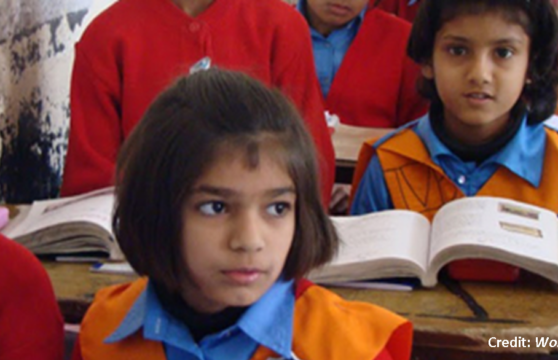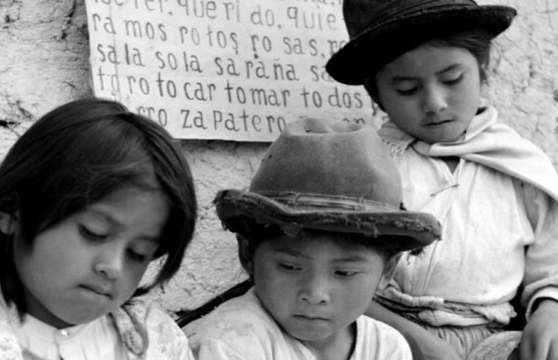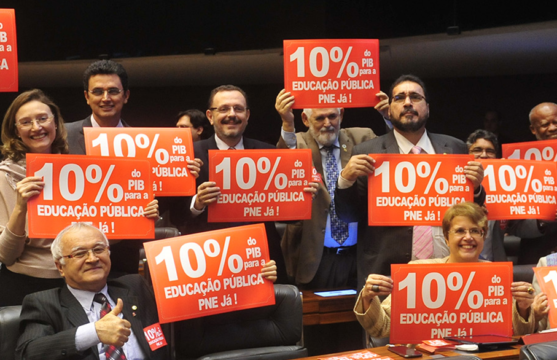
The Good (Education) News from Pakistan
Why Pakistan represents “the biggest education reform challenge” and 12 lessons that are applicable to reform efforts around the globe.
This post is also available in: Spanish
In today’s world, labor markets are changing rapidly and constantly. Technological changes, including automation, pose new, serious challenges to governments that are trying to equip their citizens with the skills they need for productive employment. Unfortunately, many educational systems are not producing the cognitive and non-cognitive skills that would allow their graduates to flourish and adapt in these changing times. Worse yet, some of these systems do not even understand what is expected of them. It is imperative to teach our youth the 21st century skills needed to take advantage of technological progress, including technical, socio-emotional, and foundational skills.
This goal has been a central to the mission of the Colombian Escuela Nueva Model (EN) since its inception over 30 years ago. Starting with foundational skills, several studies have found that the model improves literacy and numeracy even among the poorest students in different countries. Similarly, EN encourages the development of non-cognitive skills such as active and reflexive learning, self-esteem, creativity, civic and democratic values, and attitudes favorable to cooperation and solidarity. Escuela Nueva, whose model has been applied in over 16 countries around the world, received the 2009 Wise Award for its work on educational pluralism, and in 2017 its founder and director received the Yidan Prize for Education Development. Despite its massive success and proven effectiveness, the model remains largely under-exploited in Latin America. Applying the model at scale in Latin America has the potential to transform the region’s education systems, raise a generation of globally-minded citizens and develop a workforce with the skills for success.
Some of Escuela Nueva’s goals include: (i) to encourage students to participate actively in solving academic problems in the classroom; (ii) to inspire students to value democracy, tolerance, respect, and conflict resolution when interacting with others; and (iii) to highlight cooperation, teamwork, leadership, and the motivation of students in the learning process. This collaborative learning is achieved by encouraging students to work in small groups, using interactive modules designed to promote dialogue, critical thinking, and the application of new knowledge to family and community situations.
Past impact evaluations in Colombia (Psacharopoulus, Rojas and Velez, 1993), Guatemala (De Baessa, Chesterfield and Ramos, 2002) and Peru (USAID, 2010) have found that the model produces positive results, including improving learning in math and language, improving graduation rates and increasing democratic behaviors.
The latest country to incorporate the EN model is Vietnam. The Vietnam Escuela Nueva (VNEN) program integrates several innovative and globally recognized EN practices, including: (i) participative and collaborative learning; (ii) self-paced learning guides; (iii) student government; (iv) formative assessments; (v) the application of learning to everyday life, with community integration; and (vi) teacher professional networks. The combination of these elements is intended to spur a transformative and powerful learning experience that produces the kinds of new skills and competencies expected of children in the 21st Century. A recent impact evaluation study (see Parandekar et al, 2017) found that third and fifth grade students in VNEN score significantly better learning results (including both cognitive and non-cognitive skills) than students attending the regular education model. Among the non-cognitive skills that EN promoted were inter-personal skills, including teamwork, leadership capabilities, and the ability to collaborate in pursuit of a common objective, and, and intra-personal skills, including motivation and attitude, the ability to learn, problem-solving skills, effective communication with colleagues and clients; and analytical skills.
EN students develop the ability to connect to others in a direct way, to sense and stimulate reactions and desired interactions. They also are proficient at coming up with solutions and responses beyond that which is rote or rule-based; and have the ability to represent and develop tasks and work processes for desired outcomes.
With a proven record of success in helping basic and secondary education graduates to achieve the skills needed in today’s changing labor markets, EN offers an attractive package that should be a priority among education planners. The fact that the model has been recognized for the top two global education prizes (Wise and Yidan) and has produced positive results in a number of evaluations attests for its quality. However, it seems to be the case that we in Latin America are not taking advantage of the model’s potential benefits. In spite of its achievements the model has not been implemented in a sustainable manner in most countries. Although several of its characteristics and components have been integrated in the education programs in several countries, the full model has been implemented fully only in a few cases. It is important to analyze the reasons behind this fact and we propose to share a post on this topic in a future blog; we will be back to you soon.
Eduardo Vélez Bustillo, Adjunct Professor at Georgetown University, USA and Visiting Professor at Kobe University, Japan
Vicky Colbert, Executive Director of Fundación Escuela Nueva Volvamos a la Gente, and winner of the Wise Prize and the Yidan Prize for Education Development.
Colbert,Vicky and Jairo Arboleda. (2016). Bringing a student-centered participatory pedagogy to scale in Colombia. Journal of Educational Change.17:385-410.
De Baessa, Y., Chesterfield, R., and Ramos, T. (2002). Active learning and democratic behavior in Guatemalan rural primary schools. Compare: A Journal of Comparative and International Education, 32(2), 205-218.
Mogollon, O. and M. Mogollon. (2011). Active Schools. Our Convictions for Improving the Quality of Education. Washington DC.: FHI360.
Parandekar, S.D., F. Yamaguchi, A.B. Ragatz, E.K. Sedmik and A. Sawamoto. (2017). Enhancing School Quality in Vietnam through Participative and Collaborating Learning. Vietnam Escuela Nueva Impact Evaluation Study. Washington, DC.: The World Bank.
Psacharopoulos, G., C. Rojas and E. Velez. (1993). Achievement Evaluation of Colombia’s Escuela Nueva: Is Multigrade the answer? Comparative Education Review, Vol. 37.
USAID. (2010). Evaluation of USAID/Peru’s Education Program: AprenDes and Cett-Andino. Final Evaluation Report. Washington, DC: US Agency for International Development. Retrieved from: https://pdf.usaid.gov/pdf_docs/Pdacp962.pdf
Image Credit: World Bank Photo Collection / Flickr / CC BY-NC-ND 2.0
Why Pakistan represents “the biggest education reform challenge” and 12 lessons that are applicable to reform efforts around the globe.
In order to ensure that education quality receives the attention it deserves, the discussion of learning goals must be taken to the streets.
Brazilian Congress passed a new National Education Plan. What are its goals?

